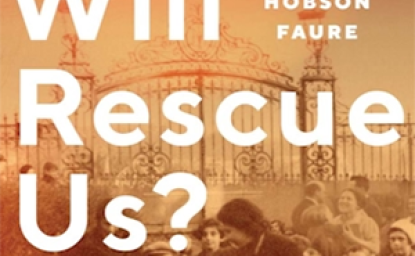With Steven Spielberg’s film “Lincoln” hitting theaters this Friday, there’s a lot of hype about what our next president — now that we know who he is — can learn from Honest Abe about running and healing a politically divided country. But as Barack Obama heads into his second term, there’s another president who may have just as much relevance as a role model: Woodrow Wilson.
Like Obama, our 28th commander in chief also happened to be a professor turned president who narrowly won reelection after a tough fight. While no presidential analogy is perfect, Wilson provides a compelling road map for Obama on what should be agenda item No. 1 for the next term: finding a way to work with Congress.
Nearly 100 years ago, Wilson helped usher in a critical reset moment for relations between the president and Congress. Today, the stakes of not collaborating are much greater: Our near-death brush with default has already hurt America’s credit rating and standing in the world, but the implications of the impending fiscal cliff are catastrophic.
In this era of dangerous blame-game politics, both the president and Congress need to learn fast from Wilson’s leadership example.
Although Wilson never served in the House or the Senate, he studied the legislative branch as a doctoral student (his dissertation was called “Congressional Government: A Study in American Politics”). As a result, the “Schoolmaster of Politics” entered the Oval Office with a clear understanding of the workings of Congress and used that knowledge to advance his presidential agenda. After academic politics, the former president of Princeton used to joke, he actually found the “real thing” easier.
So as we approach our 28th president’s centennial, what specific lessons might still apply?
One, to paraphrase Woody Allen, a big part of success is showing up. Wilson was the first president since John Adams to deliver his inaugural address in person to Congress, and his interaction with policymakers didn’t stop there. During the rest of his presidency, he frequently went to Capitol Hill to discuss important issues — and his face time paid off.
The best way for any president to show that he respects the needs of lawmakers — a key step toward compromise — is to build personal relationships. Starting with the lame-duck session, it’s essential that Obama identify and court opinion leaders in Congress. This includes not only committee chairs but also newer members in both parties who may be experts on a given subject. It’s retail politics: meals, plane trips and golf games. Not stuff Obama enjoys. Wilson did it. Today’s leaders must, too.
Two, the president must use his considerable political capital. Wilson won in 1913 because Teddy Roosevelt ran on a third-party Bull Moose ticket and split the Republican vote. Wilson then superseded toxic partisanship to provide legislative leadership for now legendary bills like the Federal Reserve Act of 1913, which established the system of Federal Reserve banks still in use today. He also sponsored and secured passage of income tax and anti-trust legislation during the first two years of his presidency.
Even with smaller Democratic majorities after the midterm elections of 1914, Wilson continued to rack up legislative successes. After those losses, Wilson still oversaw passage of the first inheritance taxes and the first federal aid to farmers. He also pushed through laws designed to ban child labor, shorten workdays and provide injury protection for workers.
Three, engagement has to go in both directions. In other words, Congress has to use its political capital, too. That means working with the president and members across the aisle and actually talking about questions of national importance. As Wilson said, debate is not only “the essential function of a representative body” but also “the only effective means of educating public opinion.” When Congress won’t even raise the tough issues today (think cybersecurity), the public loses.
A fourth and final lesson: The president needs to be able to articulate — and, with the help of Congress, execute — a vision for this country. Wilson did this with the League of Nations, which later became the blueprint for the United Nations. Sadly, after numerous legislative achievements, Wilson suffered a stroke that prevented him from reaching a compromise with Congress to ratify the league. But he still won the Nobel Peace Prize a year later for his efforts. Obama’s Cairo speech was an excellent start, but economic issues swamped the effort.
The path forward for this country requires collaboration between the president and Congress at a level we haven’t seen in over a decade. A sadly fading memory is that Bush 43 supported intelligence reform — which was opposed by his vice president, defense secretary and some Republicans in Congress — as well as a number of bills to reorganize government and secure the homeland after Sept. 11. As we face the biggest crisis of this decade — the impending fiscal cliff — putting all issues on the table to flesh out a grand bargain is vital and urgent.
Great leaders — like Lincoln and Wilson — sometimes ignored their cautious advisers and put the needs of the country before their own political careers. As we now know, history judged their leadership well.
We don’t need to wait for history to judge the next presidency. Exhausted by this negative election and embarrassed by its $6 billion price tag, Americans are waiting for that leader who says the country comes first. Maybe, just maybe, that’s what Obama will do.
This article first appeared on Politico.




